Ask any music producer what they want to achieve with their music, and it will likely be something to do with ‘having their personal sound’ or ‘making music from the heart’.
Whether you’re making ambient soundscapes or drum & bass bangers, it seems that this one fact unites as all.
But many producers express that they don’t feel like they can write music that reflects what they want yet.
This might be due to the infancy of a producer’s journey with music, or just a lack of experience.
So how do some producers seem to write meaningful music, and others don’t?
One thing you can benefit from are rituals.
Sounds weird, right?
What does a ritual have to do with me sitting at my computer making beats?
Well, let’s find out.
New to music production? 🧑💻
Watch our Free Masterclass on how to learn electronic music production the smart way (without months of confusion & frustration) 👇
The Inspiration Problem
We talk a lot about the shortcomings of inspiration here at EDMProd.
Because not only is inspiration unreliable, but it’s sporadic.
It’s hard to capture, and hard to transform into music. You get it while sweeping the floors at your 9-5, not when you’re sitting down, tea in hand and ready to make music.
In fact, in the DAW is exactly where many producers feel stuck and idea-less.
And therein lies the truth: ideas are not bound to the moments you’re practising your artform. They come and go as they please.
It’s not that we don’t have ideas while producing – in fact getting into a flow state of music production often results from chasing one idea after the other.
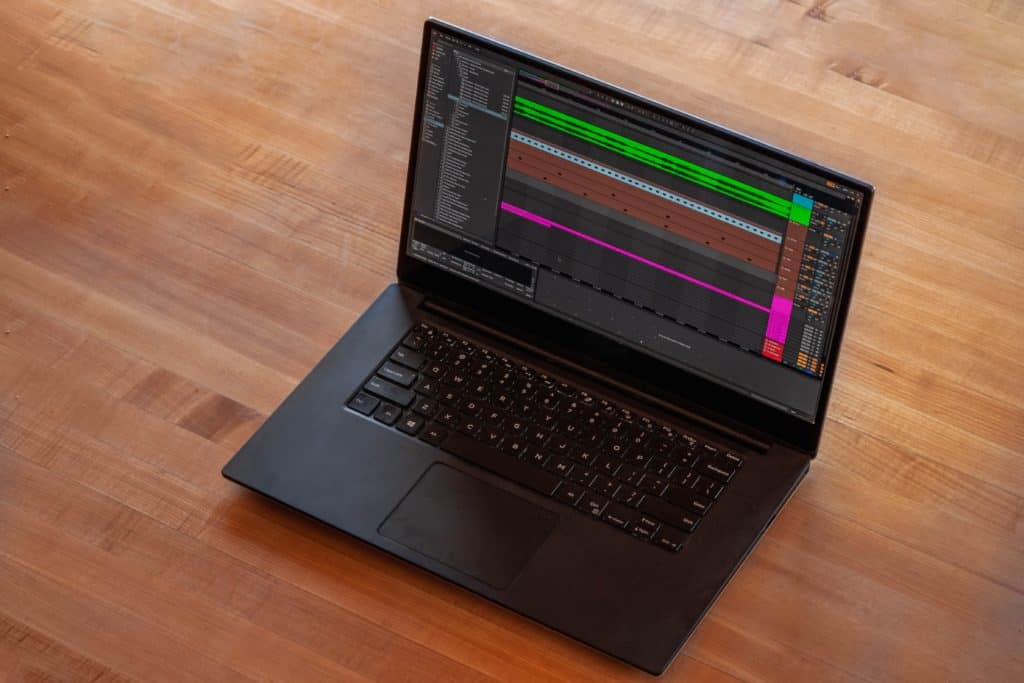
But truly unique ideas often come out of random experiences, ones that don’t happen in the studio.
For example, maybe sweeping the floor compelled you to add some short reverse sounds to your claps – something you never thought of before.
Why we crave inspiration
So, we’re chasing after this ephemeral thing called inspiration.
The main reason we feel we need inspiration is because we need some sort of tangible goal to strive towards, and a reason to move forward.
I like to think of inspiration of having many origins, but three in particular.
One form of this inspiration is goals, imagery and desired states of being.
For example, you go to a deadmau5 gig and want to write the most beautiful progressive house EP ever.

You see an inspirational post from Marshmello on social media about his rise to success.
The EDC livestream shows you your favourite DJs playing to thousands of people.
The second form is production tips, ideas and new sounds.
Your scrolling through samples on Splice and hear something. You watch the latest EDMProd tutorial and come up with a new idea.
These help us at a tactical level, rather than at a big picture level.
The other form consists of experiences, emotions and feelings.
This is the cliché ‘I broke up with my girlfriend so now I’m going to write a song’ type of inspiration. But it goes further then that.
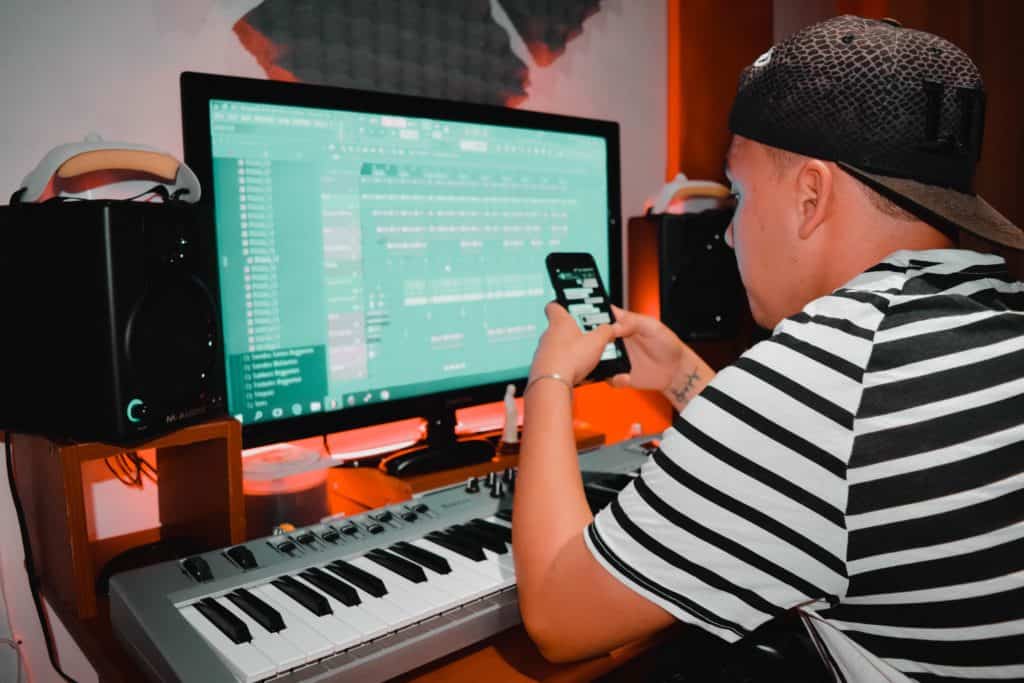
It can be a memory you spent with friends. A quiet car ride to your parents house. A time you struggled with your exam results.
These are the kinds of things we want to inject into our music, but struggle to.
But it turns out that it might just require some more time.
Recommended: 30 Ways To Find Inspiration For Your Music
Emotion in reflection
Think back to the first track you wrote. Listen to it if you can.
If this disgusts you, find the earliest track that you were pleased with. How does it make you feel? Nostalgic? Happy? Reflective?
There’s a reason for this.
Music tends to fully form its meaning after it’s written, from personal experience and the experience of other artists.
The same reason that the Daft Punk album you listened to back in 2007 makes you feel a certain way, is the same reason that your own music makes you feel a certain way, months and years after it is written, but to an even stronger degree.
A lot of this is subconsciously implied as you write a track, but it might not become apparent until we reflect on our music, sometimes a long time after it has been written and even released.
Is emotional music better?
All this talk of emotion and meaning in music begs the question:
Is emotional music better?
For some, the answer seems obviously. For others, the question might seem irrelevant.
Truth be told, the question is hard to answer, and it might be personal.
But one thing that is for sure is that it influences the creative process in ways unique to you.
This is why people want to inject meaning before and during the creative process, and not just let it form after.
As we’ve discovered, this tends to happen subconsciously anyway, but there are benefits to setting aside deliberate time to think about what you want your music to represent.
This is where ‘The Producer Ritual’ comes into play.
New to music production? 🧑💻
Watch our Free Masterclass on how to learn electronic music production the smart way (without months of confusion & frustration) 👇
The Producer Ritual: Meaning before writing
So, it is possible to have deliberate meaning before writing a track.
But Aden, I’m not writing lyrics! I’m making festival bangers!
Sure, but you can still create meaning all the same.
Look at it as a tool for creating a pool of original, meaningful concepts that can influence your production process in completely different ways.
In our eBook, The Producer’s Guide to Workflow & Creativity, we briefly mention the concept of rituals.
Rituals are series of habits you get into before starting a session of music production. This can involve things like:

- Making tea
- Letting your housemates/partner/parents know that you’re making music
- Closing the door
- Turning on your gear
- Closing all your apps
- Etc.
But one thing you can add into this ritual is a session what I like to call a ‘writing without music’.
You’re coming up with ideas about the music without starting the track itself.
The first place to start is by doing a ‘brain dump’.
Step 1: The Brain Dump
This is where you empty your thoughts, and it’s crucial when starting a production ritual.
The process is extremely simple – write your thoughts onto paper, or type them into notes.
Here’s a personal example for a new song I had an idea for called ‘Timepiece’:
(I name my tracks early on, which is something else I do to help me establish a sense of meaning. It’s completely optional though.)
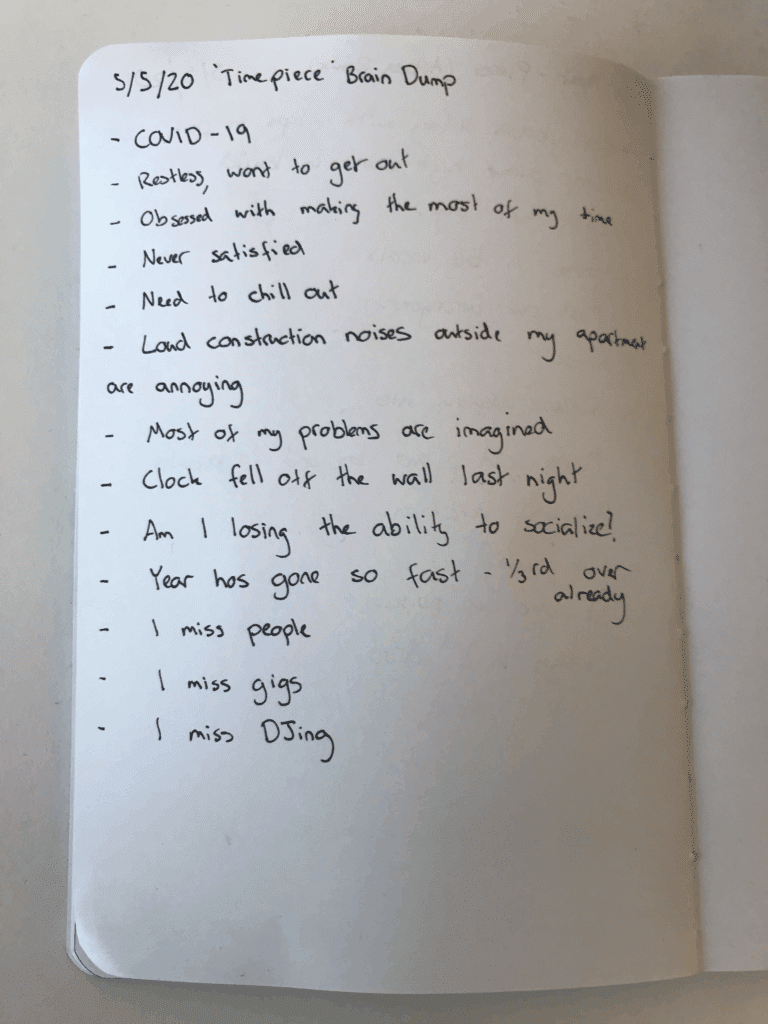
Step 2: Refining Your Thoughts
So once you’ve got some ideas out of your head, it helps to select a few to focus on, and elaborate on them specifically.
You can do this by circling the important things, and by writing some extra details around them.
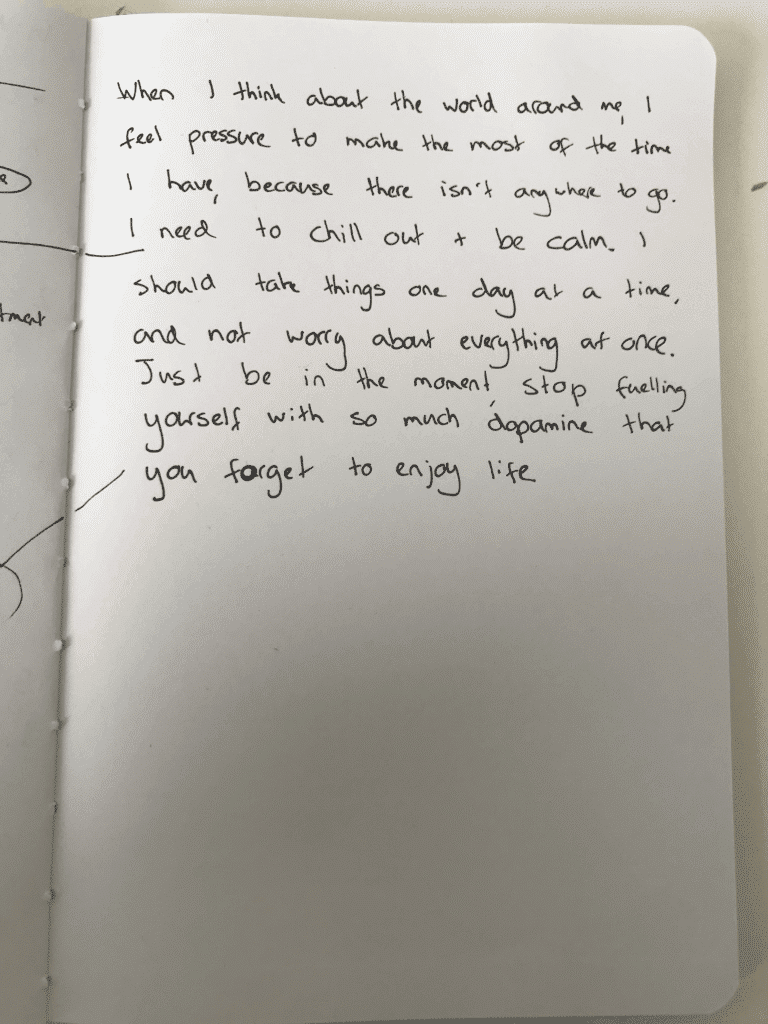
This forms what I like to call a ‘creative concept’ for a track.
Step 3: Translation Into Actions
Once you’ve got a solid creative concept, it helps to identify a few next steps and important production factors.
In my case, there were a few cool ideas I had.
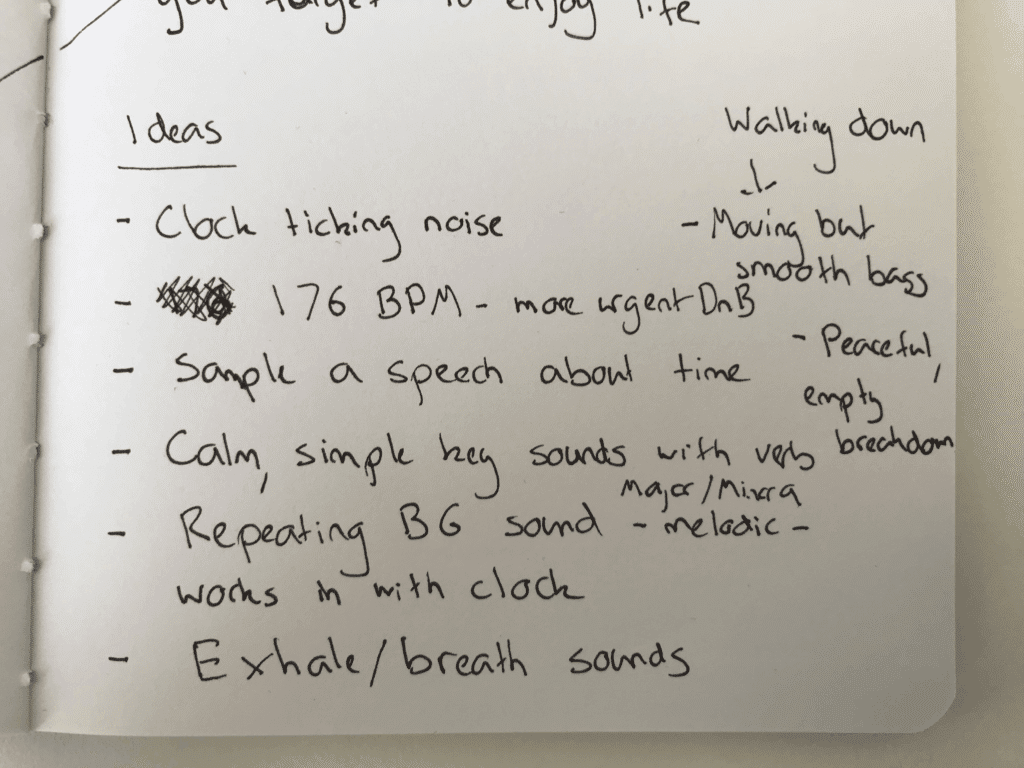
There’s no real rule, as I find inspiration at this stage translates itself naturally depending on the person.
Another key factor here is to not be afraid if you don’t use these ideas. The creative process still takes priority and if you have further ideas, go for it. This stage is simply to give yourself a pool of creative starting points that you might not have otherwise come up with.
But if you’re not used to this way of working, you might need a few ideas. Here are a few techniques for different emotions of music.
Recommended: 11 Uncommon Workflow Tips For Uninspired Music Producers
Techniques for specific emotions
Translating emotion into music can be difficult, especially with many of us having so many tools at our disposal.
Here are a few ‘overarching’ moods and a few production ideas to try out for each, from songwriting to sound design:
Happiness
- Major chords are a feature
- Brighter modes and scales
- Bright, high-end sounds
- Simple melody
Sadness
- Minor chords
- Darker modes
- Low-pass filters
- Reverb/delay
- Pads
- Slower rhythms
- Intricate FX
Anger
- Distortion
- Compression
- OTT
- Power chords
- Faster rhythms
- Minor chords
Calm
- Low pass filters
- Soft sounds
- Jazz and seventh chords
- ‘Cosy’ sounding FX
- Intricate sounds
Mystery/Confusion
- Seventh/diminished chords
- Eeeie pads
- Strange sampled textures and foley
- Unpredictable rhythms
Romance
- Major and minor seventh chords
- Low-passed basses
- Sparkly FX
- Slower rhythms
Energy
- Pentatonic scales
- OTT
- Minor scales
- Bright basses and leads
- Faster rhythms
Can I write without emotion?
Many would say yes, but I don’t think so.
Your sound is likely a representation of your personality, and your individual works a reflection of your states, moods and experiences.
But as we explored, emotion doesn’t always have to come from a conscious place – often our production choices, our chord selections and melody contours all come from a subtle desire to create something for ourselves as we are, right now.
Even the most boring, banal music can from meaning to those who appreciate it.
Yes, even the most generic, bland & soul-less pop music could represent a misguided nature or an inner state of dissatisfaction through cognitive dissonance.
New to music production? 🧑💻
Watch our Free Masterclass on how to learn electronic music production the smart way (without months of confusion & frustration) 👇
Further improvements to workflow
Injecting emotion into your tracks can help influence the production process in personally satisfying and interesting ways.
Yet it’s difficult to implement a lot of it if you don’t have a good workflow in the first place.
If you’ve been producing for a while, you’ll know that workflow is crucial to writing consistently good music.
That’s why we wrote The Producer’s Guide to Workflow & Creativity – an eBook designed to help you overcome creative problems, optimize your production processes and write better tunes.
Any questions? Email me at [email protected] and I’ll try my best (I promise). 😉

